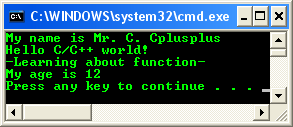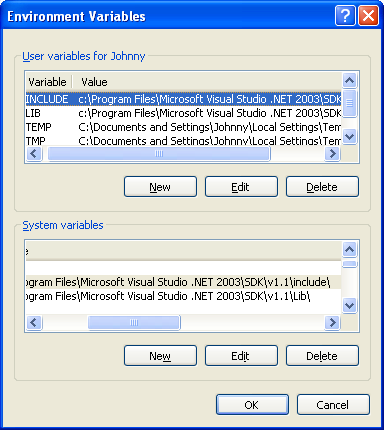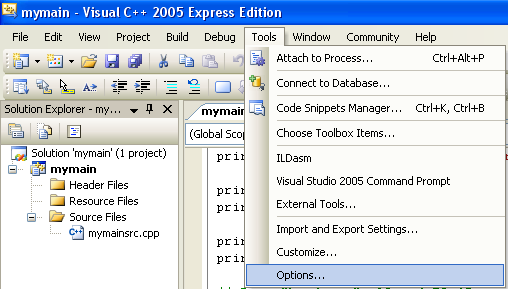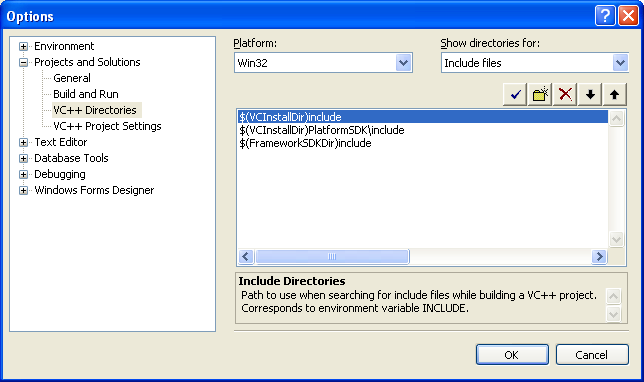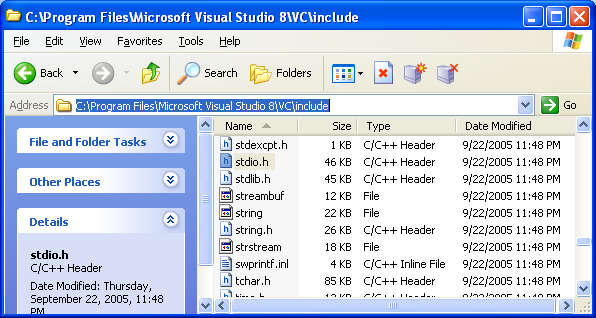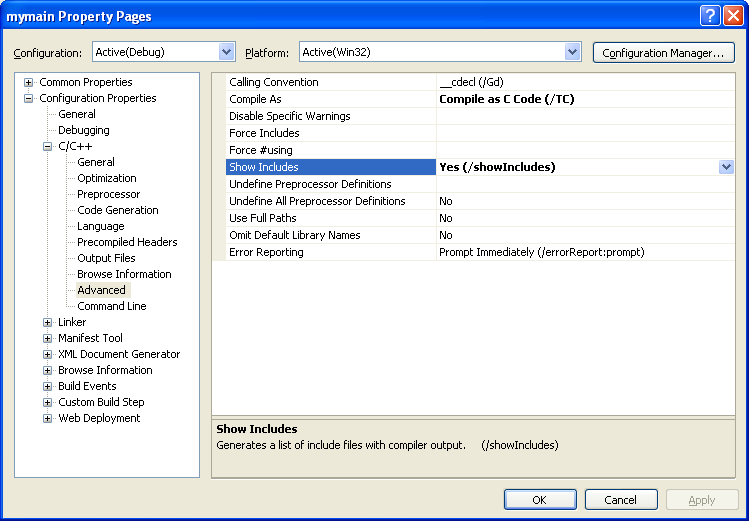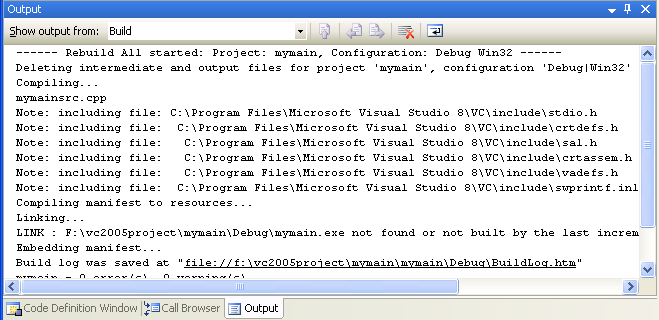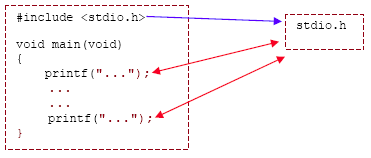| Main |<Build, Run & Debug C Program 2 |C main() and printf() functions 2 >|Site Index |Download |
C LAB WORKSHEET 4
C main() and printf() functions 1
Items in this page:
Be familiar with the compiler – more on project options.
main() function – the need of main() as C/C++ execution point.
Tutorial references are: C/C++ intro & brief history,C/C++ data type 1,C/C++ data type 2,C/C++ data type 3 and C/C++ statement, expression & operator 1,C/C++ statement, expression & operator 2 andC/C++ statement, expression & operator 2. More printf() and its family examples can be found inC formatted input/output. A complete story of main() is inC and C++ main() story.
If you have gone throughModule 1 and2, themain() function is needed for the execution point of C/C++ programs. That means compiler start the program execution at main() function. A complete story about the main() function is given inModule Y. In your C/C++ program also, there are other functions that you already familiar with such as printf(). You can see then, C/C++ programs just consist of functions with main() as the execution point.
|
|
|
|
|
|
|
| |
| |
| |
| |
| |
| |
| |
| |
| |
| |
| |
Questions: Please answer the following questions:
Name the function that must always exist as an execution point in C/C++ program.Ans: main()
Why the stdio.h header file need to be at the beginning of the source code file?Ans: So that any functions defined in stdio.h header file such as printf() andscanf() can be used immediately in the program after the stdio.h line of code.
What indicates there is no arguments are being received by main()?Ans: the void keyword as inmain(void).
What indicates there is no values are being returned by main()?Ans: the void keyword as invoid main().
What indicates the beginning and the end of the main() body? Ans: The opening and closing curly braces, { and } for the beginning and the end of the main() body respectively.
What is used to terminate each C/C++ statement? Ans: a semicolon, ;.
Where is the printf() function defined? Ans: In stdio.h header file.
How can we tell compiler to find the printf() definition? Ans: By including the stdio.h header file in our program before the printf() function been used.
The printf(),printf_s(),_printf_s_l(), wprintf_s(),_wprintf_s_l()Family Story
The definitions are summarized in the following Tables.
Item | Description |
Function | printf() family. |
Use | These functions family print formatted output to the standard output stream. The secure versions areprintf_s(),_printf_s_l(),wprintf_s() and _wprintf_s_l(). |
Prototype |
|
Example | printf("See my characters: %c, %c and %c\n",'X','Y','Z'); |
Parameters | format - Format control. argument - Optional arguments. locale - The locale to use. |
Return value | Returns the number of characters printed, or a negative value if an error occurs. If format isNULL, the invalid parameter handler is invoked. If execution is allowed to continue, the function returns-1 and sets errno to EINVAL. |
Include file | <stdio.h> or <wchar.h> for wprintf_s() and _wprintf_S_l(). |
Remark | - |
Table 1 | |
Item | Description |
Function | Secure printf() family. |
Use | Similar to the previous use but are secure versions of printf(),_printf_l(),wprintf(),_wprintf_l(). |
Prototype |
|
Example | printf_s("Decimal: %d Justified: %.6d Unsigned: %u\n", count, count, count ); |
Parameters | format - Format control. argument - Optional arguments. locale - The locale to use. |
Return value | Returns the number of characters printed, or a negative value if an error occurs. If format is NULL, the invalid parameter handler is invoked, as described in Parameter Validation. If execution is allowed to continue, the function returns-1 and sets errno to EINVAL. |
Include file | <stdio.h> or <wchar.h> for wprintf() and _wprintf_l(). |
Remark | The printf_s() function formats and prints a series of characters and values to the standard output stream, stdout. If arguments follow the format string, the format string must contain specifications that determine the output format for the arguments. The main difference between printf_s() and printf() is that printf_s() checks the format string for valid formatting characters, whereasprintf() only checks if the format string is a null pointer. If either check fails, an invalid parameter handler is invoked. If execution is allowed to continue, the function returns -1 and sets errno to EINVAL.printf_s() and fprintf_s() behave identically except that printf_s() writes output to stdout rather than to a destination of typeFILE.wprintf_s() is a wide-character version of printf_s(); format is a wide-character string. wprintf_s() and printf_s() behave identically if the stream is opened in ANSI mode. printf_s() doesn't currently support output into a UNICODE stream. The versions of these functions with the _l suffix are identical except that they use thelocale parameter passed in instead of the current thread locale. The format argument consists of ordinary characters, escape sequences, and (if arguments follow format) format specifications. The ordinary characters and escape sequences are copied to stdout in order of their appearance. For example, the line:
printf("Line one\n\t\tLine two\n");
produces the output:
Line one Line two
|
Table 2 | |
The Format Specifications
Format specifications always begin with a percent sign (%) and are read left to right. When printf() encounters the first format specification (if any), it converts the value of the first argument after format and outputs it accordingly. The second format specification causes the second argument to be converted and output, and so on. If there are more arguments than there are format specifications, the extra arguments are ignored. The results are undefined if there are not enough arguments for all the format specifications.
This topic describes the syntax for format specifications fields, used in printf(),wprintf() and their related families. A format specification, which consists of optional and required fields, has the following form:
%[flags] [width] [.precision] [{h | l | ll | I | I32 | I64}]type
Each field of the format specification is a single character or a number signifying a particular format option. The simplest format specification that you normally use contains only the percent sign and a type character (for example, %s). If a percent sign is followed by a character that has no meaning as a format field, the character is copied to stdout. For example, to print a percent-sign character, use %%. The optional fields, which appear before the type character, control other aspects of the formatting, as follows:
Parameter | Description |
type | Required character that determines whether the associated argument is interpreted as a character, a string, or a number. |
flags | Optional character or characters that control justification of output and printing of signs, blanks, decimal points, and octal and hexadecimal prefixes. More than one flag can appear in a format specification. |
width | Optional number that specifies the minimum number of characters. |
precision | Optional number that specifies the maximum number of characters printed for all or part of the output field, or the minimum number of digits printed for integer values. |
H | l | ll | I | I32 | I64 | Optional prefixes to type-that specify the size of argument. |
Table 3 | |
The Optional Prefixes to Type
The optional prefixes to type, h,l, I,I32, I64, and ll specify the "size" of argument (long or short, 32- or 64-bit, single-byte character or wide character, depending upon the type specifier that they modify). These type-specifier prefixes are used with type characters in printf() functions or wprintf() functions to specify interpretation of arguments, as shown in the following table. These prefixes are Microsoft extensions and are not ANSI-compatible. The h and l prefixes are Microsoft extensions when used with data of type char and you won’t found it in other compiler.
The Size Prefixes forprintf() and wprintf() Format-Type Specifiers
The following Table is a list of size prefixes.
To specify | Use prefix | With type specifier |
long int | l (lowercase L) | d,i, o, x, or X |
long unsigned int | l | o, u, x, or X |
long long | ll | d, i, o, x, or X |
short int | h | d, i, o, x, or X |
short unsigned int | h | o, u, x, or X |
__int32 | I32 | d, i, o, x, or X |
unsigned __int32 | I32 | o, u, x, or X |
__int64 | I64 | d, i, o, x, or X |
unsigned __int64 | I64 | o, u, x, or X |
ptrdiff_t (that is, __int32 on 32-bit platforms, __int64 on 64-bit platforms) | I | d, i, o, x, or X |
size_t (that is, unsigned __int32 on 32-bit platforms, unsigned __int64 on 64-bit platforms) | I | o, u, x, or X |
long double | l or L | f |
Single-byte character with printf functions | h | c or C |
Single-byte character with wprintf functions | h | c or C |
Wide character with printf functions | l | c or C |
Wide character with wprintf functions | l | c or C |
Single-byte – character string with printf functions | h | s or S |
Single-byte – character string with wprintf functions | h | s or S |
Wide-character string with printf functions | l | s or S |
Wide-character string with wprintf functions | l | s or S |
Wide character | w | c |
Wide-character string | w | s |
Table 4. | ||
Thus to print single-byte or wide-characters withprintf() functions and wprintf() functions, use format specifiers as follows.
To print character as | Use function | With format specifier |
single byte | printf() | c,hc, or hC |
single byte | wprintf() | C,hc, or hC |
wide | wprintf() | c,lc,lC, or wc |
wide | printf() | C,lc,lC, or wc |
Table 5. | ||
To print strings with printf() functions and wprintf() functions, use the prefixes h and l analogously with format type-specifiers s and S.
A Type Character
The type character is the only required format field; it appears after any optional format fields. The type character determines whether the associated argument is interpreted as a character, string, or number. The types C,n,p, and S, and the behavior of c and s with printf() functions, are Microsoft extensions and are not ANSI/ISO compatible and you might not find it in other compilers.
A printf() Type Field Characters
The following Table summarizes the type field characters for printf().
Character | Type | Output format |
c | int or wint_t | When used with printf() functions, specifies a single-byte character; when used withwprintf() functions, specifies a wide character. |
C | int or wint_t | When used with printf() functions, specifies a wide character; when used with wprintf() functions, specifies a single-byte character. |
d | int | Signed decimal integer. |
i | int | Signed decimal integer. |
o | int | Unsigned octal integer. |
u | int | Unsigned decimal integer. |
x | int | Unsigned hexadecimal integer, using "abcdef". |
X | int | Unsigned hexadecimal integer, using "ABCDEF". |
e | double | Signed value having the form [–]d.dddd e [sign]dd[d] where d is a single decimal digit,dddd is one or more decimal digits, dd[d] is two or three decimal digits depending on the output format and size of the exponent, and sign is + or –. |
E | double | Identical to thee format except thatE rather than e introduces the exponent. |
f | double | Signed value having the form [–]dddd.dddd, where dddd is one or more decimal digits. The number of digits before the decimal point depends on the magnitude of the number, and the number of digits after the decimal point depends on the requested precision. |
g | double | Signed value printed in f or e format, whichever is more compact for the given value and precision. The e format is used only when the exponent of the value is less than–4 or greater than or equal to the precision argument. Trailing zeros are truncated, and the decimal point appears only if one or more digits follow it. |
G | double | Identical to theg format, except that E, rather than e, introduces the exponent (where appropriate). |
a | double | Signed hexadecimal double precision floating point value having the form [−]0xh.hhhh p±dd, where h.hhhh are the hex digits (using lower case letters) of the mantissa, anddd are one or more digits for the exponent. The precision specifies the number of digits after the point. |
A | double | Signed hexadecimal double precision floating point value having the form [−]0Xh.hhhh P±dd, where h.hhhh are the hex digits (using capital letters) of the mantissa, anddd are one or more digits for the exponent. The precision specifies the number of digits after the point. |
n | Pointer to integer | Number of characters successfully written so far to the stream or buffer; this value is stored in the integer whose address is given as the argument. |
p | Pointer tovoid | Prints the address of the argument in hexadecimal digits. |
s | String | When used with printf() functions, specifies a single-byte–character string; when used withwprintf() functions, specifies a wide-character string. Characters are printed up to the first null character or until the precision value is reached. |
S | String | When used with printf() functions, specifies a wide-character string; when used with wprintf() functions, specifies a single-byte–character string. Characters are printed up to the first null character or until the precision value is reached. |
Table 6. | ||
If the argument corresponding to %s or %S is a null pointer, "(null)" will be printed. In all exponential formats, the default number of digits of exponent to display is three. Using the _set_output_format() function, the number of digits displayed may be set to two, expanding to three if demanded by the size of exponent. The %n format is inherently insecure and is disabled by default; if %n is encountered in a format string, the invalid parameter handler is invoked.
| Main |<Build, Run & Debug C Program 2 |C main() and printf() functions 2 >|Site Index |Download |
The C main() and printf() Functions:Part 1 |Part 2
